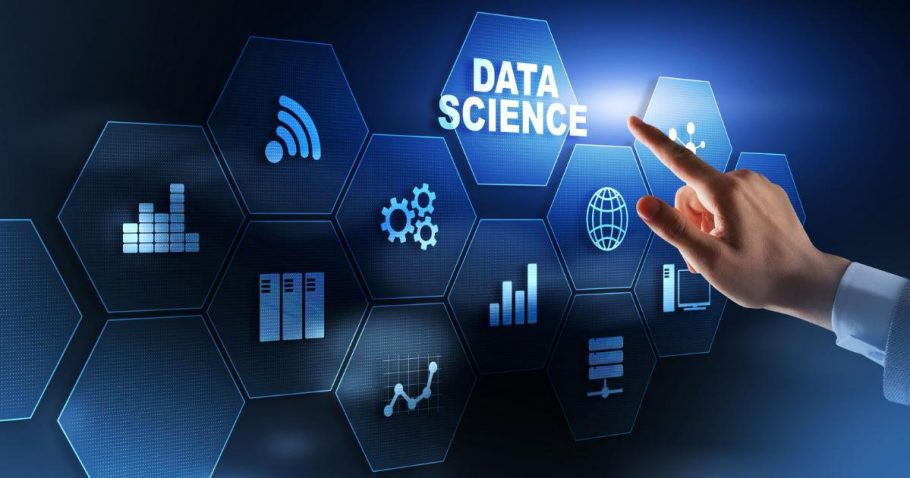Data Science has emerged as one of the most sought-after fields in academia and industry. With the proliferation of big data, artificial intelligence, and machine learning, the demand for skilled data scientists is at an all-time high. Choosing the right university is crucial for aspiring data scientists, as it lays the foundation for their careers.
Key Takeaway
When selecting a university for Data Science, consider factors such as faculty expertise, research opportunities, industry connections, and the curriculum’s alignment with current industry trends. Institutions like MIT, Stanford, and ETH Zurich offer robust programs that blend theoretical knowledge with practical applications, preparing students for the dynamic field of Data Science.
Top Universities for Data Science in 2025
1. Massachusetts Institute of Technology (MIT), USA
MIT’s Data, Systems, and Society (IDSS) program is renowned for its interdisciplinary approach, combining data science with social sciences and engineering. The program emphasizes real-world applications and offers students opportunities to work on impactful projects.
2. Stanford University, USA
Located in the heart of Silicon Valley, Stanford offers a comprehensive Data Science program that integrates machine learning, statistics, and computer science. Students benefit from proximity to tech giants and startups, providing ample internship and collaboration opportunities.(tech-gam.com)
3. Harvard University, USA
Harvard’s Data Science Master’s Program focuses on the intersection of computer science, statistics, and domain-specific knowledge. The curriculum is designed to prepare students for leadership roles in the data science industry, with access to extensive research resources.(tech-gam.com)
4. University of California, Berkeley, USA
UC Berkeley’s Master of Information and Data Science (MIDS) program offers both online and on-campus learning options. The program emphasizes practical data analysis, cloud computing, and data engineering, with strong ties to the tech industry.(tech-gam.com)
5. ETH Zurich, Switzerland
ETH Zurich offers a world-class MSc in Data Science, blending mathematical foundations with machine learning and big data processing. The university is a hub for AI research in Europe, providing students with a research-driven curriculum.(tech-gam.com)
6. National University of Singapore (NUS), Singapore
NUS provides a top-tier Master’s in Data Science and Machine Learning, offering advanced coursework in artificial intelligence, deep learning, and predictive analytics. The program emphasizes real-world data applications and has strong ties with international tech companies.(tech-gam.com)
7. University of Toronto, Canada

The University of Toronto’s Data Science Institute offers an innovative curriculum focusing on AI, big data, and analytics. Graduates are highly sought after by companies like Google, Amazon, and IBM, reflecting the program’s industry relevance.(tech-gam.com)
8. Indian Institutes of Technology (IITs), India
IITs like IIT Madras and IIT Bombay offer specialized programs in Data Science and Artificial Intelligence. These programs are designed to provide students with a strong foundation in data analysis, machine learning, and computational techniques.
9. Technical University of Munich (TUM), Germany
TUM ranks highly in engineering and technology, offering programs that integrate data science with engineering disciplines. The university emphasizes innovation and practical application, preparing students for careers in data-driven industries.(en.wikipedia.org, ft.com)
10. Tsinghua University, China
Tsinghua University is recognized for its strengths in artificial intelligence and computer science. The university offers programs that focus on data science applications in various sectors, providing students with a comprehensive understanding of the field.(en.wikipedia.org)
How to Start a Career in Data Science: A Beginner’s Roadmap
Description:
This article will provide a comprehensive guide for individuals new to data science. It will cover the foundational skills needed (programming, statistics, machine learning), recommended online courses, certifications, how to build a portfolio, and tips for landing your first data science job. Real-life examples and learning resources can be included.
Top Data Science Certifications to Boost Your Career in 2025
Description:
A detailed analysis of leading data science certifications like Google Professional Data Engineer, IBM Data Science Professional Certificate, Microsoft Azure Data Scientist, and more. The article will compare their curriculum, cost, duration, and industry value to help readers decide which one suits their goals.
Data Science vs Machine Learning vs Artificial Intelligence: What’s the Difference?
Description:
This topic will help readers distinguish between data science, machine learning (ML), and artificial intelligence (AI). It will include examples of their applications, the tools used in each field, career roles, and how they overlap yet remain distinct disciplines.
The Future of Data Science: Trends, Opportunities, and Challenges in 2025 and Beyond
Description:
An exploration of upcoming trends in the data science industry, including automation, generative AI, ethical AI, edge computing, and explainable AI (XAI). The article will also cover the growing need for responsible data usage and potential regulatory changes.
Best Countries to Study Data Science: Education, Visa, and Career Opportunities
Description:
A country-by-country comparison of top destinations for data science education (USA, Canada, Germany, Singapore, Australia, UK). It will discuss university rankings, job market conditions, visa policies, post-study work options, and average salary expectations.
How Data Science is Transforming Healthcare: Real-World Case Studies
Description:
An in-depth article highlighting how data science is being used in diagnostics, drug discovery, patient monitoring, and personalized treatment. Real-world examples from hospitals, biotech firms, and research institutions can be included to show practical impact.
The Ethical Implications of Data Science: Where Do We Draw the Line?

Description:
This piece will dive into ethical issues in data science such as bias in algorithms, data privacy, surveillance, and transparency. It will also explore solutions and frameworks like GDPR, explainable AI, and responsible data governance.
Top Tools Every Data Scientist Should Master in 2025
Description:
A rundown of must-know tools and platforms, categorized by purpose (e.g., data wrangling, visualization, modeling, deployment). Examples include Python, R, SQL, TensorFlow, PyTorch, Tableau, Power BI, Apache Spark, and Jupyter Notebooks.
Building a Winning Data Science Portfolio: Projects, GitHub, and Tips
Description:
This article will guide readers on how to build a data science portfolio that showcases their skills to potential employers. It will cover types of projects to include, how to write project descriptions, visualizations, GitHub best practices, and tips for personal branding.
Women in Data Science: Breaking Barriers and Building the Future
Description:
A feature article focusing on the achievements and challenges faced by women in the field. It can include interviews, success stories, scholarship opportunities, mentoring communities, and how diversity enhances data science outcomes.
Also Read : Which Universities Are Leading the World in 2025?
Conclusion
Selecting the right university for Data Science is a pivotal decision that can shape your career trajectory. Institutions like MIT, Stanford, and ETH Zurich offer robust programs that blend theoretical knowledge with practical applications. It’s essential to consider various factors, including faculty expertise, research opportunities, and industry connections, to make an informed choice.
FAQs
1. What is Data Science?
Data Science is an interdisciplinary field that uses scientific methods, processes, algorithms, and systems to extract knowledge and insights from structured and unstructured data. It combines techniques from statistics, computer science, and domain-specific knowledge to analyze and interpret complex data.
2. Why is Data Science Important?
Data Science enables organizations to make informed decisions by analyzing large volumes of data. It plays a crucial role in various industries, including healthcare, finance, marketing, and technology, by providing actionable insights and predictions.
3. What Skills are Needed for a Career in Data Science?
Key skills for a data scientist include proficiency in programming languages like Python and R, knowledge of statistical analysis, machine learning, data visualization, and strong problem-solving abilities.
4. What is the Difference Between Data Science and Data Analytics?
Data Science involves the use of advanced algorithms and machine learning techniques to predict future trends, while Data Analytics focuses on interpreting historical data to identify patterns and insights.
5. Can I Pursue a Data Science Program Online?
Yes, many universities offer online Data Science programs, providing flexibility for students to learn at their own pace. Programs like UC Berkeley’s MIDS and Harvard’s Data Science Master’s Program offer online learning options.(tech-gam.com)
6. What is the Job Outlook for Data Scientists?
The demand for data scientists is expected to grow significantly in the coming years. According to the U.S. Bureau of Labor Statistics, employment of data scientists is projected to grow by 35% from 2021 to 2031, much faster than the average for all occupations.(businessinsider.com)
7. How Do I Choose the Right University for Data Science?
Consider factors such as the university’s reputation, faculty expertise, curriculum, industry connections, and alumni network. It’s also important to evaluate the program’s alignment with your career goals and interests.



